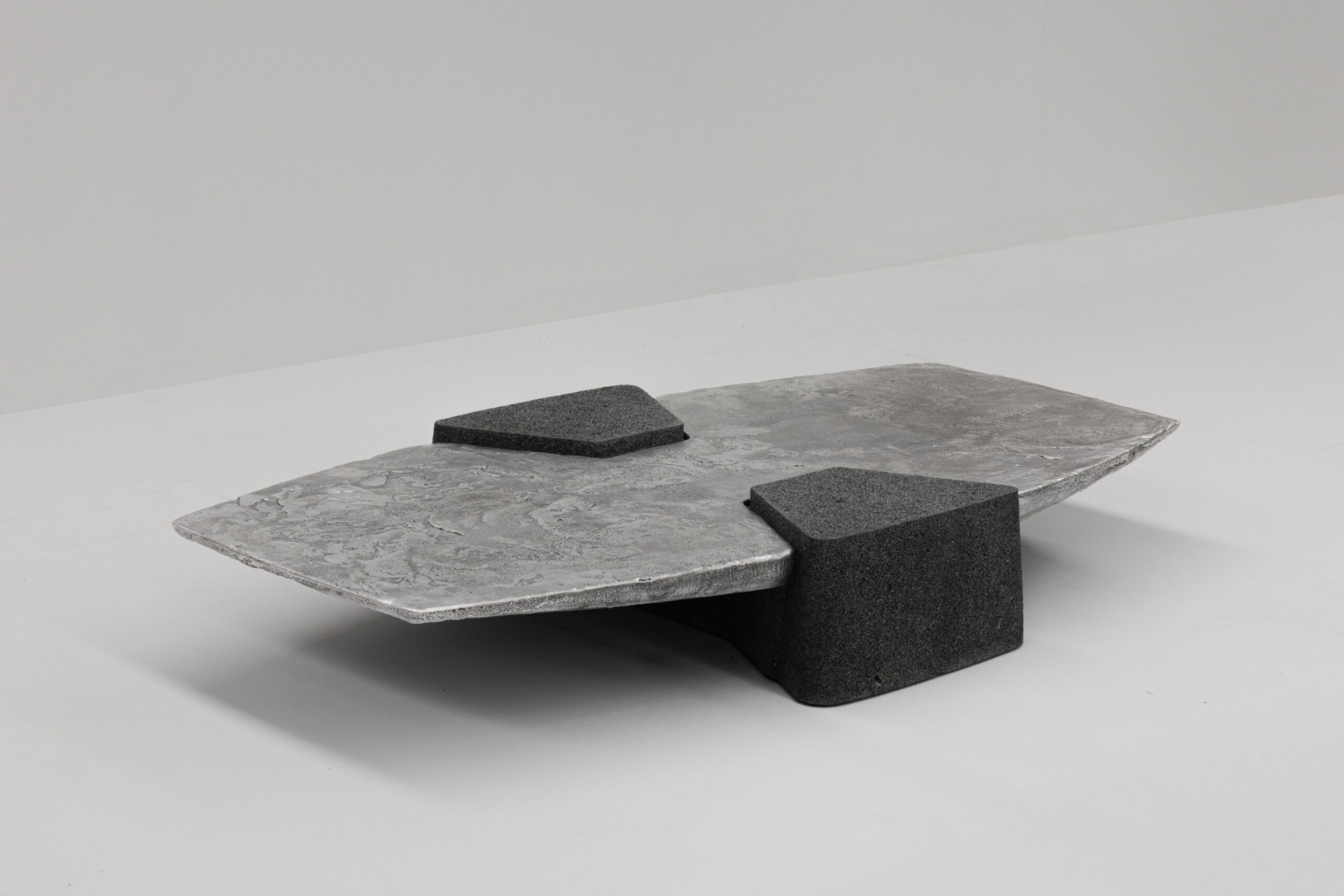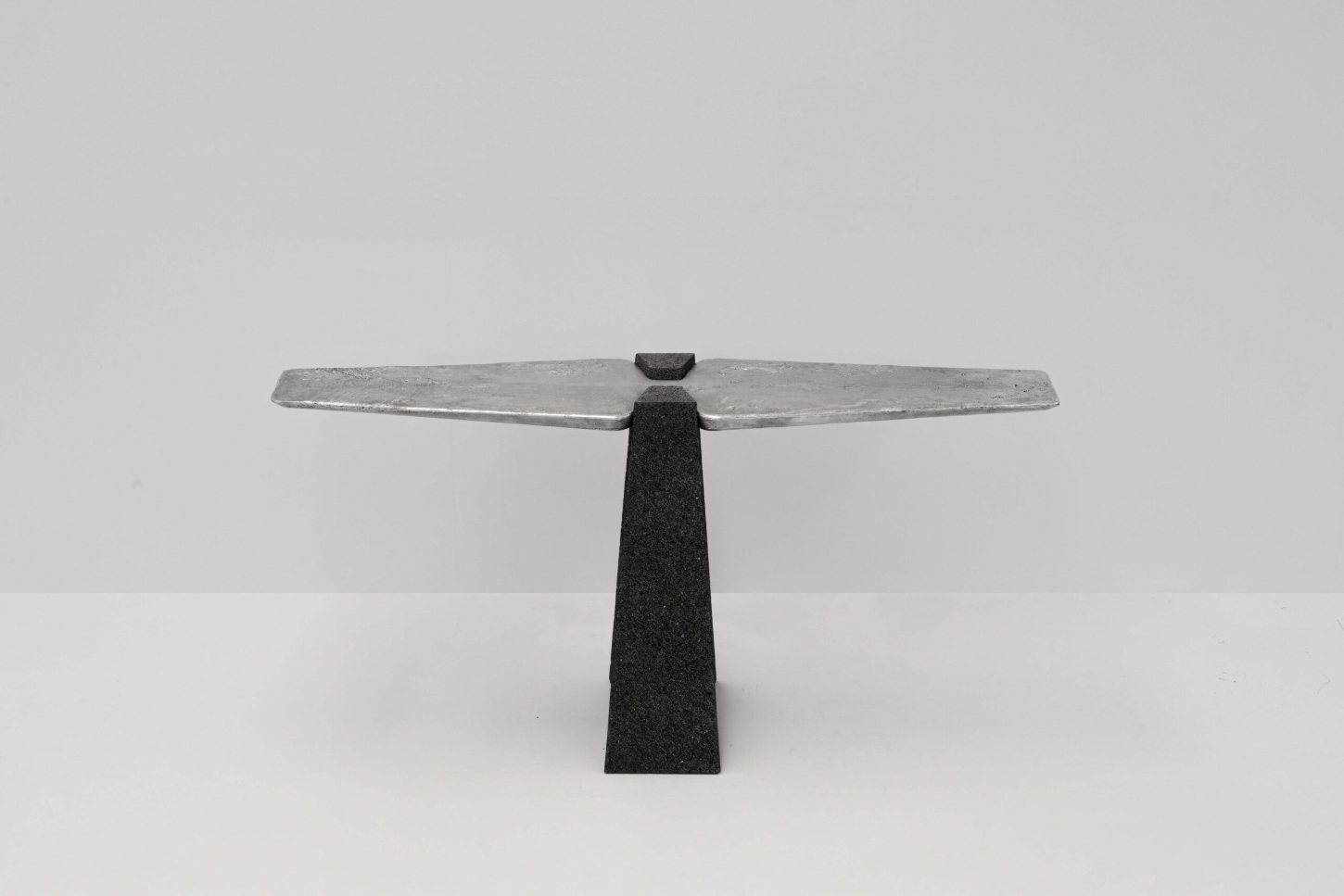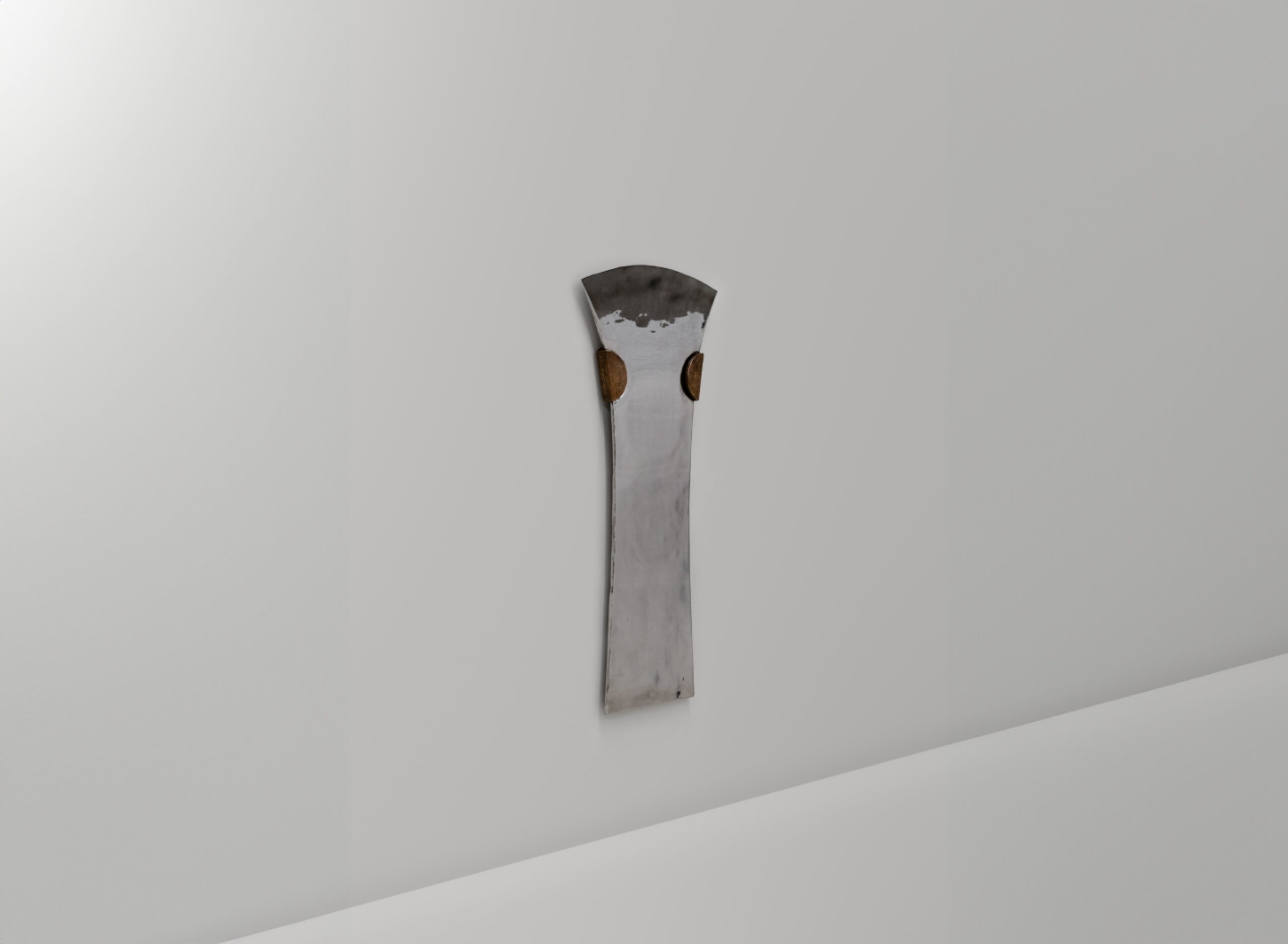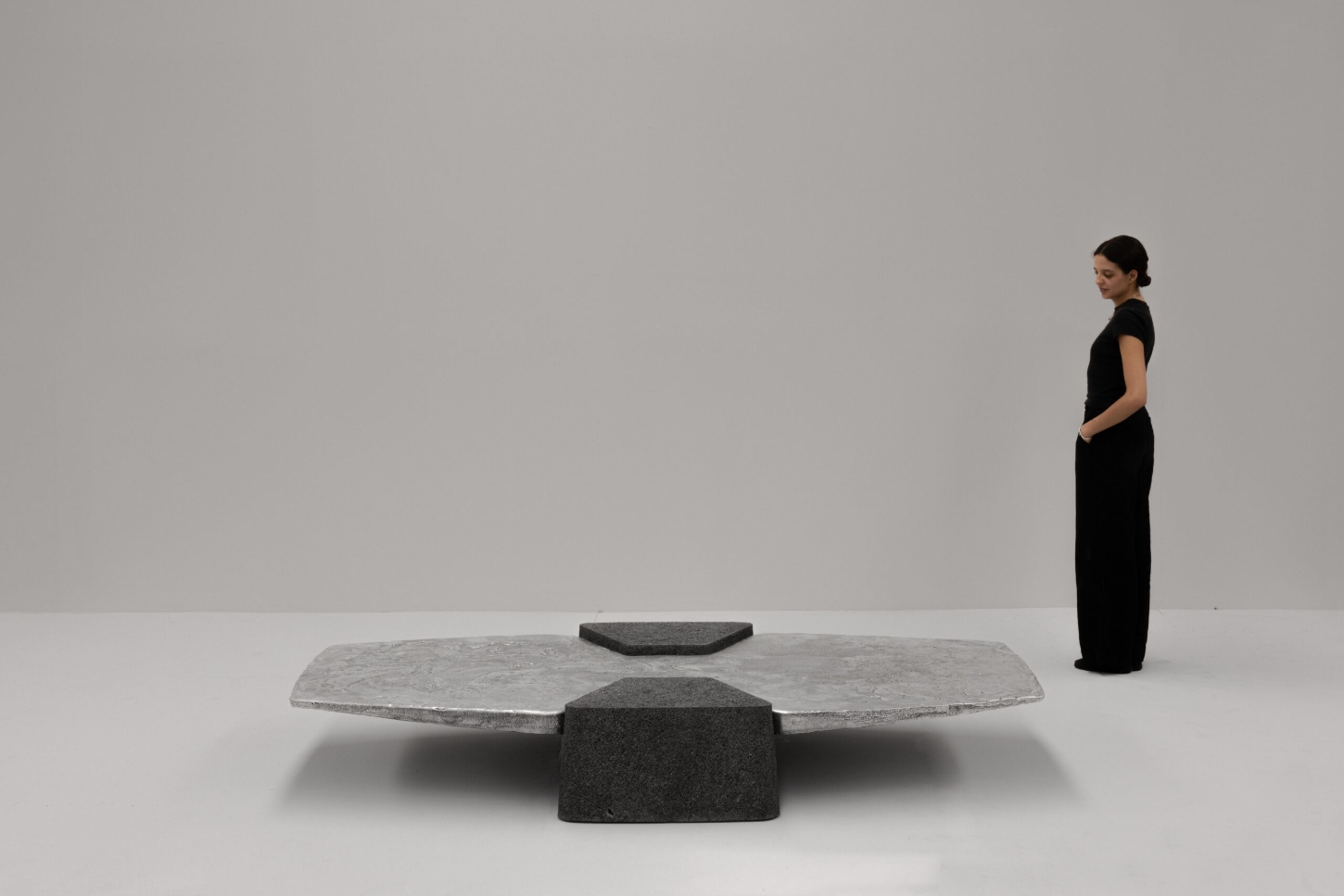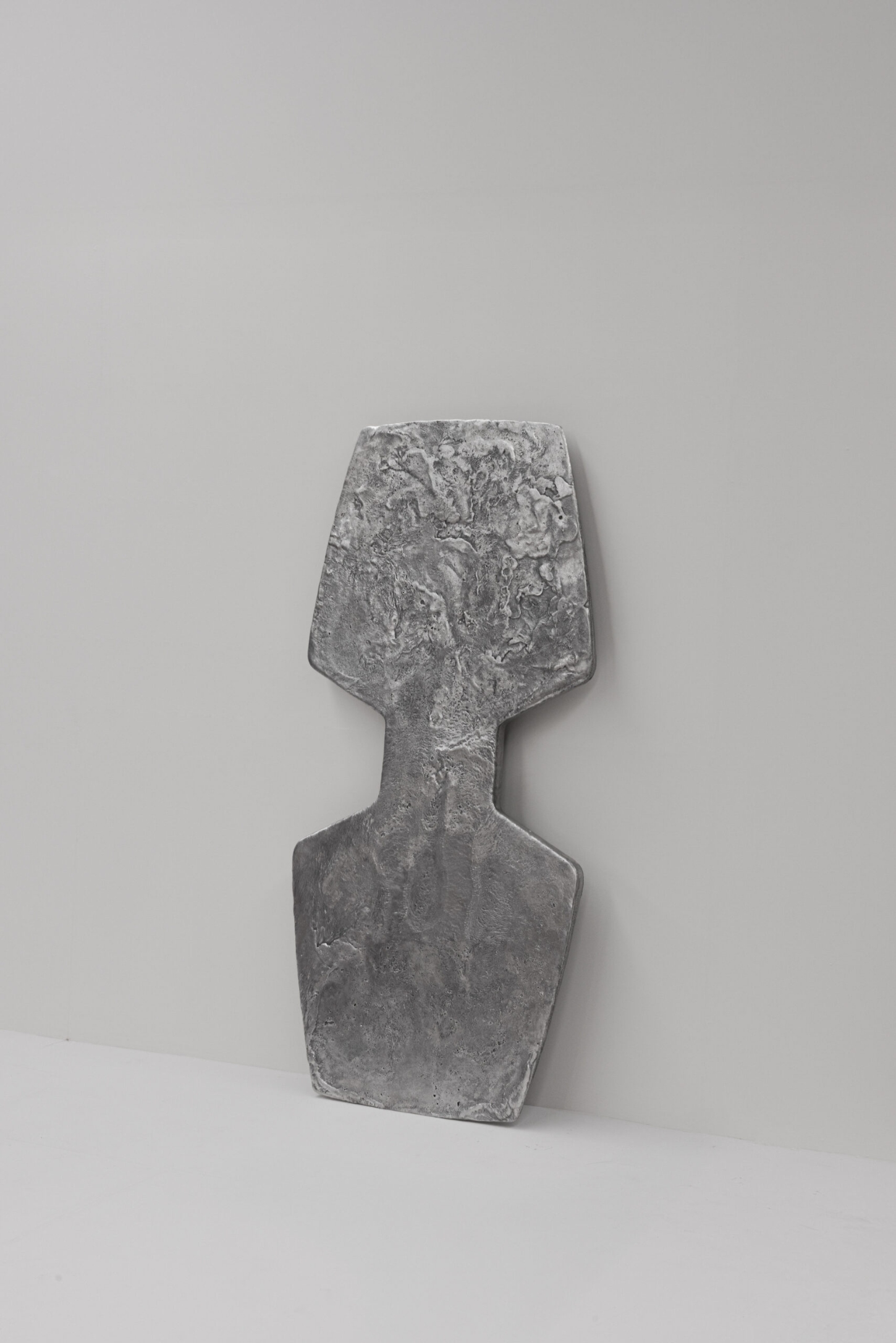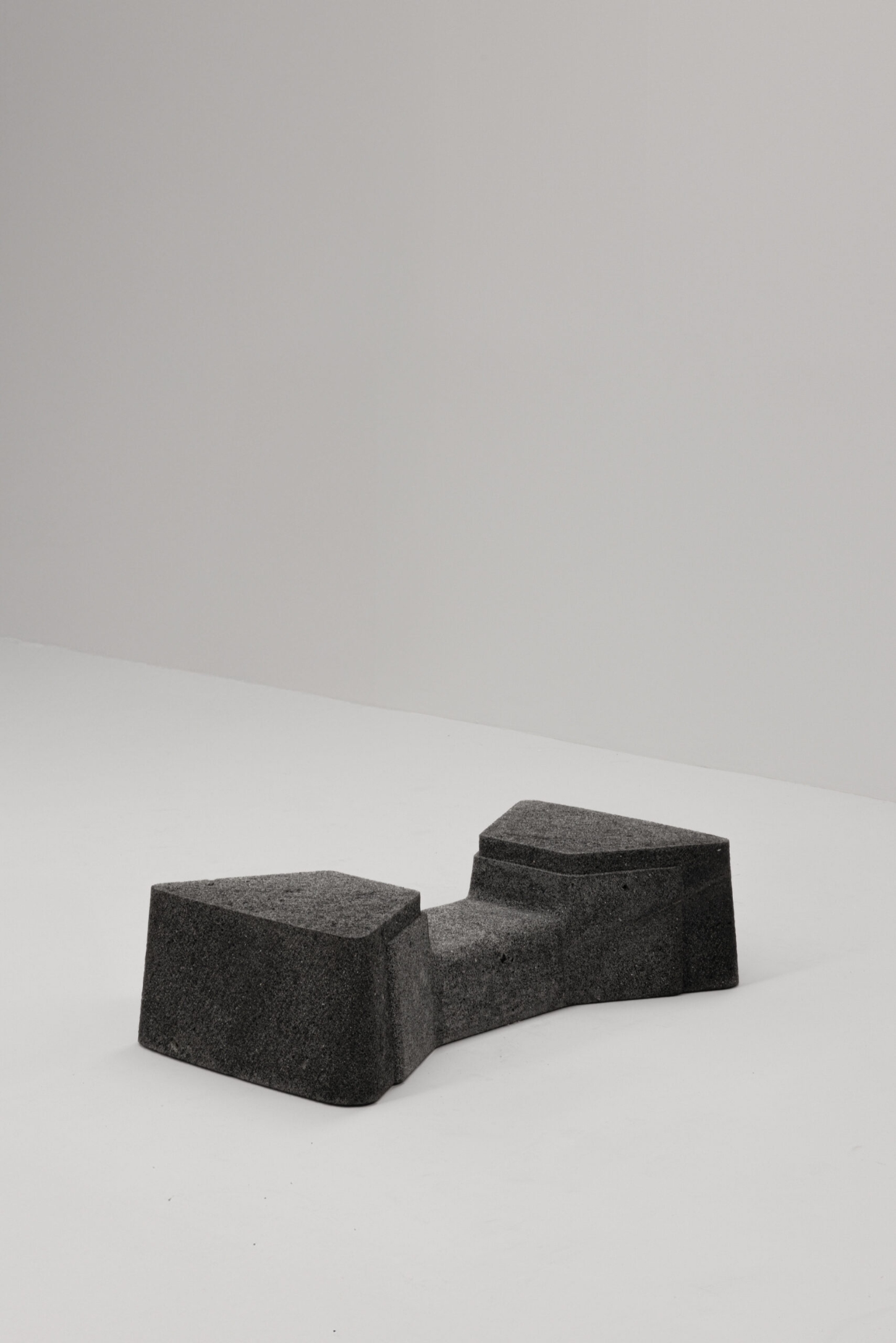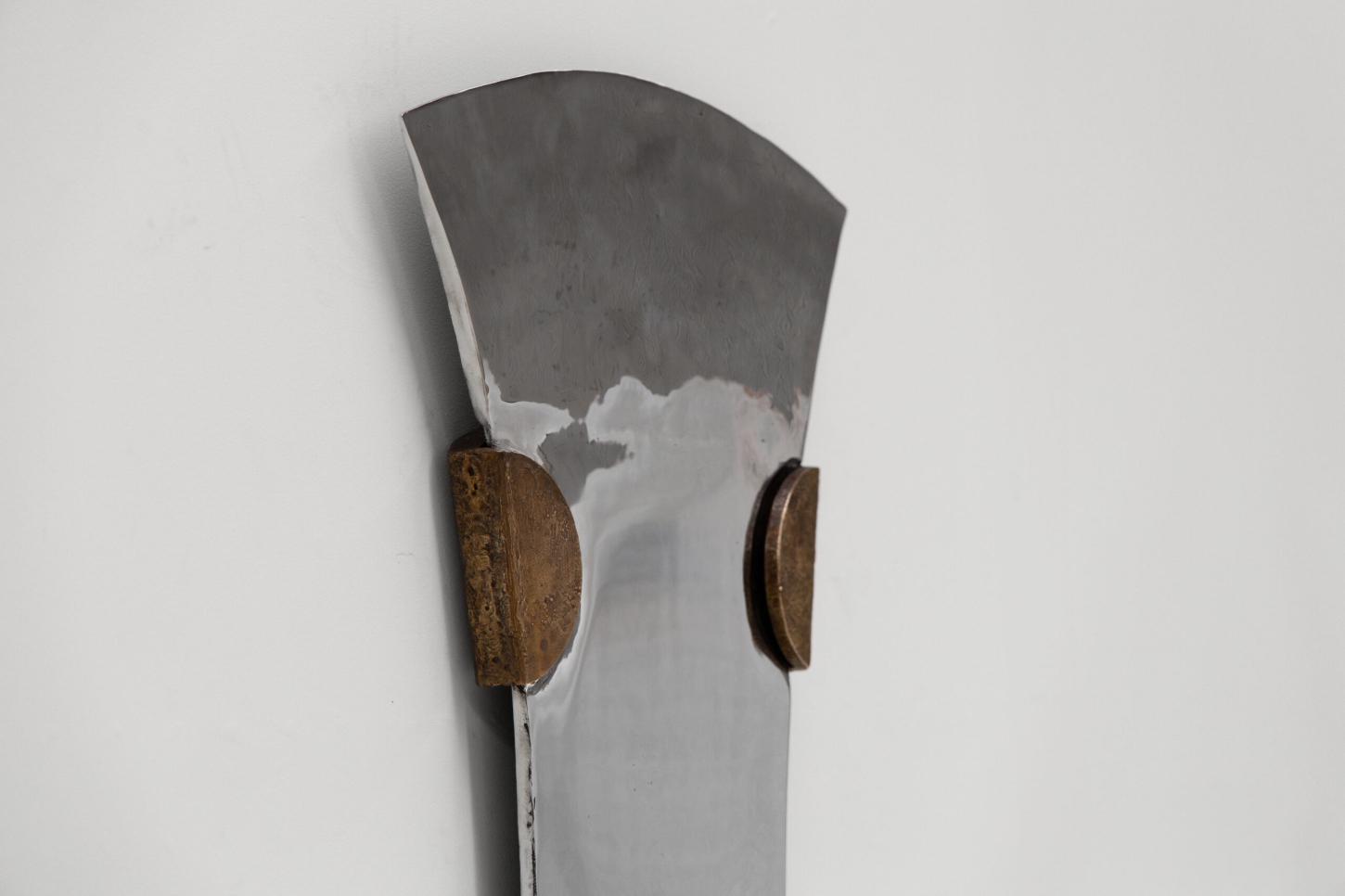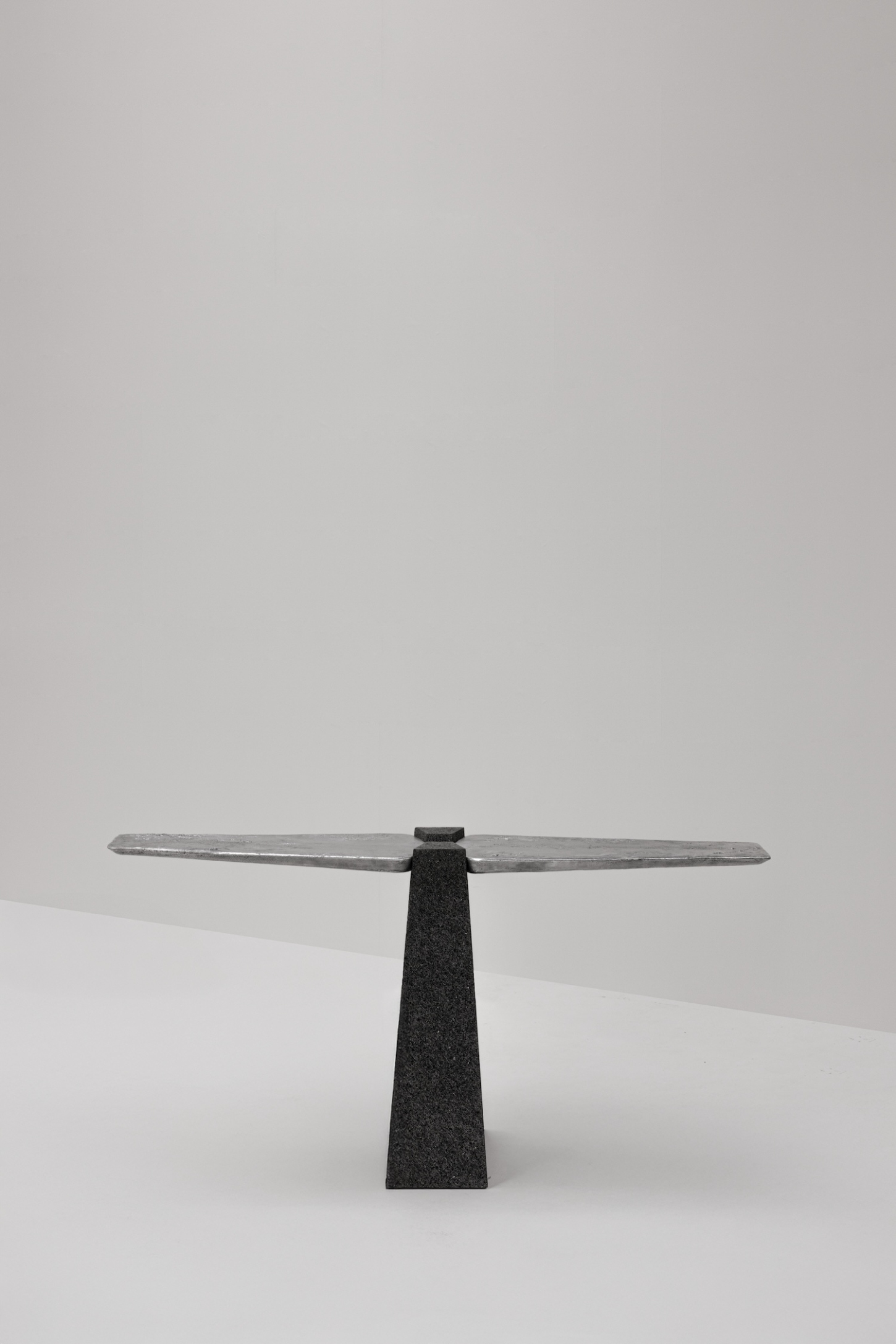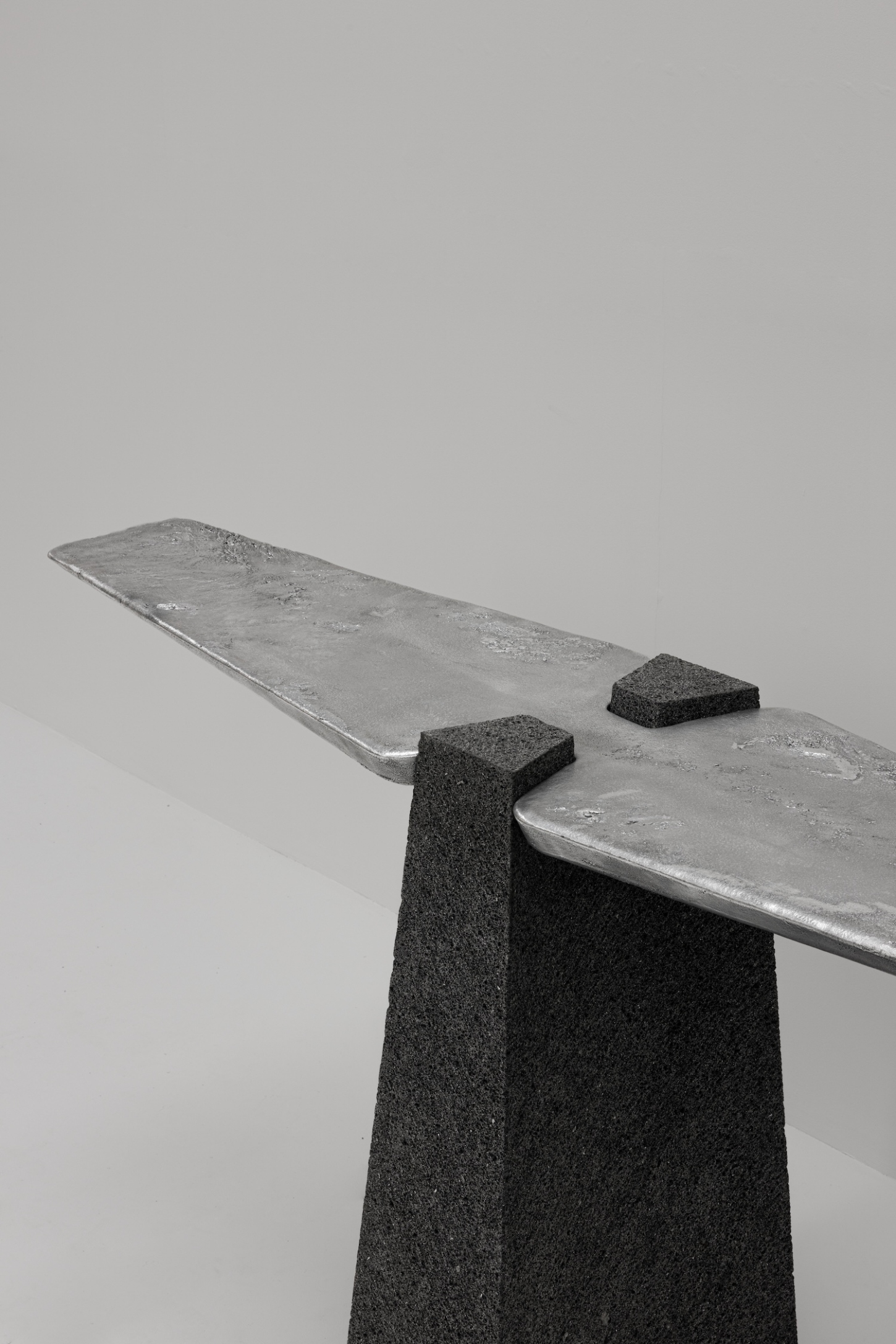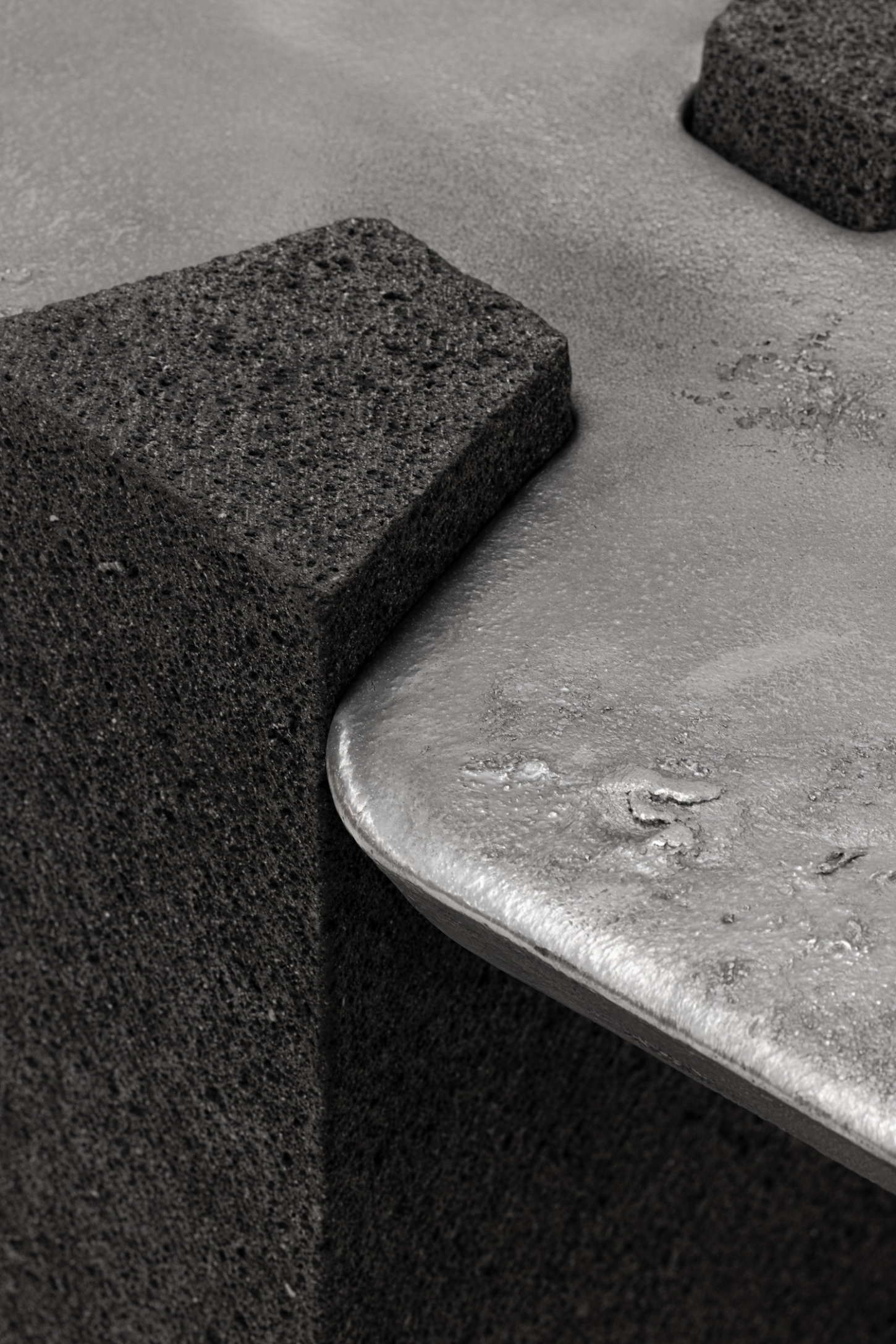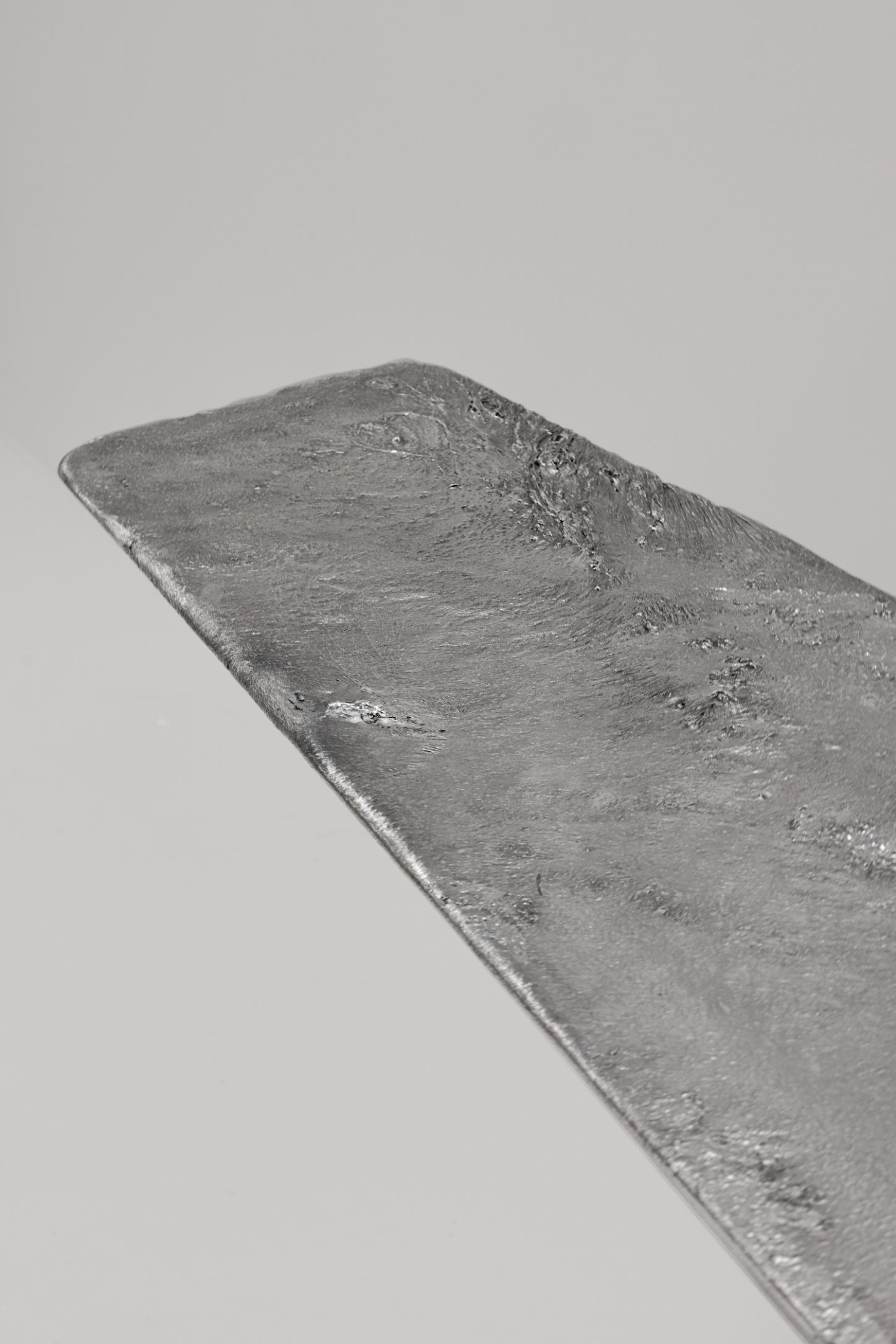EXHUMA by EWE Studio applies sand-cast aluminum to volcanic stone, using a technique rooted in Purépecha metalwork refined over five centuries to merge ancestral craft with contemporary design.
The studio worked with the traditional sand-casting process, in which molten metal is poured into hand-formed molds and allowed to cool before the surface is revealed. Unlike industrial casting, the process produces irregular textures, giving each object subtle differences. “We are proud to incorporate these traditional techniques into our work and to highlight this artisanal legacy,” the designers note.
EXHUMA is not intended as reproduction, but as translation. The forms take inspiration from the Tajadera—flat copper tools that, before the arrival of Europeans, were used as weapons, currency, and ceremonial objects. In the collection, the reference appears less literal than structural: broad metal slabs balanced against dense stone bases.
The console anchors a vertical block of volcanic basalt with a sienna-toned aluminum top. The low table takes the same vocabulary and compresses it horizontally, while the mirror reframes it, pairing reflective metal with a carved stone base. Across all three pieces, the contrast is consistent—stone for stability, metal for surface and light.
By using the same sand-casting process that has been practiced since the 15th century, EWE positions EXHUMA within the larger conversation around craft in contemporary design - the collection highlights variation as an outcome of method, where the hand and the material dictate the final result.

